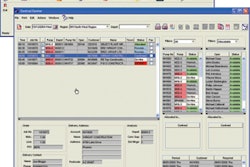Contracts serve to govern how a concrete contractor does its job, and whether or not the job will be profitable. Navigating contracts and agreeing to terms that meet each party's needs can be difficult, especially considering that a construction contract can be up to 100 pages long. The subcontract can also reference and incorporate the terms and conditions of preceding documents, such as the prime contract and/or bid proposal which can be up to 500 pages in length.
Usually the terms of the prime contract cannot be changed, but sometimes the subcontract can be negotiated. Because of this, concrete contractors need to review and be familiar with the contract's terms to protect themselves from conflicts that might arise down the road. Here are 10 common terms every concrete contractor should watch for when entering into a contract:
- Order of precedence
Typically, when multiple contract documents are used, they will contain an order of precedence. This order determines how the documents' provisions are interpreted and states which terms govern when there is confusion or contradiction between contract terms. More often than not, the purchase order is the controlling document, followed by the request for bid, and then the contractor's bid. It is important to be familiar with the order of precedence because a term may be defined one way in the contractor's bid, but it may be overruled by a different document.
- Dispute resolution
Many times, construction contracts require dispute resolution to be handled through an arbitration proceeding instead of a formal lawsuit. There are times when this can be advantageous, such as in particularly complex construction, but there are times when this is detrimental. For instance, if a contractor institutes an arbitration with the American Arbitration Association for an unpaid contract balance above $1 million, the filing alone will cost $13,250. While this fee is only 1 percent of the sum at issue, it is much larger than a typical court filing fee of $100. Additionally, parties pay all arbitration costs, including the hourly rates of arbitrators, which, collectively, can exceed $1,000 per hour. Examine whether or not arbitration would be beneficial each time you enter into contract.
- Jurisdiction
Contracts usually specify jurisdiction in the event that a project goes poorly and the parties end up in litigation. It is not unusual for a contract to specify jurisdiction in a state that is most convenient for the party that drafted the contract — typically, the project owner. Consider jurisdiction when weighing the pros and cons of a contract as this can increase the cost of litigation.
- Plant inspection
For some projects, particularly government-regulated jobs, the owner or general contractor may specify the right to inspect or audit the batch plant. Few things are worse than when the owner's engineer inspects a batch plant to find everything in disarray. This reflects poorly on the concrete contractor, even if the plant is operating perfectly. Make sure the batch plant operator is aware of the potential for inspection and agrees to properly maintain its records, including all batch tickets and design mixes. By the same token, it is the concrete contractor's responsibility to make sure the operator is actively managing these records.
- Liability for strength
Any concrete contractor knows that concrete strength can be affected by a variety of factors, ranging from the quality of ingredients in individual batches to procedures followed during curing. If the concrete does not come up to strength sufficiently, the contractor can be liable for an equally broad variety of damages, including consequential damages for delaying a project. However, if the cause for strength issue is not the fault of the concrete contractor but of another party, such as the batch plant, the concrete contractor must be able to obtain recovery from that party. Consider incorporating the terms of the prime contract, including arbitration, into any other agreement entered into for the project.
- Liability for design mix
Subcontracts should spell out specifically who is responsible for — and, consequently, liable for — the design mix. It is to the concrete contractor's benefit for the owner's engineer to design the mix and specify exactly what should be included; however, sometimes contracts are vague and merely address strength requirements. Be sure the subcontract specifies that the final decision belongs to the owner or general contractor. This way, if the design mix becomes an issue, responsibility will not fall on the shoulders of the concrete contractor.
- Naming the design mix
Confusing design mixes is one of the easiest mistakes made in the field. If the subcontract spells out the nature of the mixes, be sure they are distinctively named, so that a batch plant operator or driver is less likely to accidentally provide the wrong mix. For instance, if there are two types of concrete with 4,000-psi strength but different mixes, give each mix a distinctly different name to reduce the likelihood of confusion.
- Record maintenance
Most subcontracts will require the proper maintenance of records regarding the concrete, batches, placement, etc. Even if the subcontract does not include such requirements, it is a good business practice to maintain scrupulous records. For subcontracts that contain specific record-keeping provisions, it is vitally important to follow the requirements as closely as possible. This means establishing protocols for the field and accountability for those charged with maintaining records. Failure to maintain records the right way can be a major impediment to resolving any sort of conflict that may arise between the concrete contractors and others on the project.
- Testing costs
Each subcontract should clearly spell out who is responsible for independent testing of the concrete, and more importantly, assign financial responsibility. While it is customary for subcontracts to outline that testing the batches and placed concrete is required, some do not define who is responsible for that testing. Make sure to create a subcontract that defines these expectations.
- Provisions for delays
It is rare for a construction project to be completed on time. Because of this, each contract must include provisions regarding handling delays, apportionment of associated costs and how the project should proceed in light of delays. Be wary of contracts that place an inordinate amount of responsibility on one party as this can be a warning sign of future trouble.
Overall, contracts should clearly spell out the expectations and promises of the parties who sign the document. Each provision has importance and none should be taken lightly. Entering into a bad contract is equal to building a project with bad drawings, as it only begs for more trouble later. It is better to take the time before signing a contract to be sure that everyone is on the same page to avoid disagreements later.
Christopher M. Ernst is a partner in the Cleveland office of Buckingham, Doolittle & Burroughs, LLP, where he focuses on concrete, construction and business litigation. He is also a member of the American Concrete Institute.


















